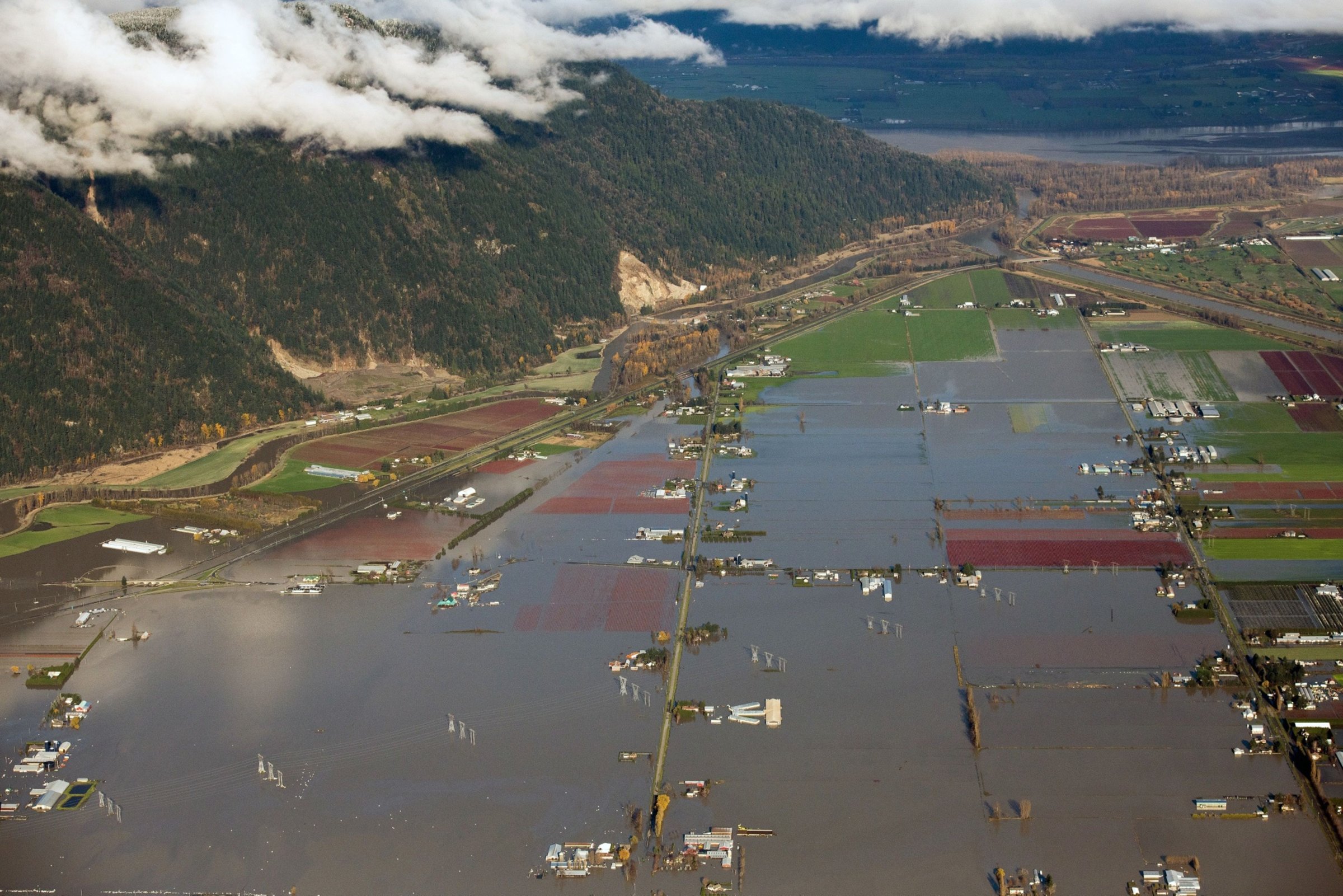
Canada’s federal government pledged to help flood-hit British Columbia as the province faces more rain starting Monday.
The Canadian armed forces are sending more than 500 troops and have 12 aircraft working to assist in relief efforts for at least the next 30 days, with thousands more troops available if needed, federal ministers including Bill Blair, minister of emergency preparedness, and Anita Anand, minister of national defence, said in a press conference Sunday.
The government is also waiving the Covid-19 test requirement for reentry to Canada for people living along the border who cross into the U.S. to get essential supplies such as fuel and food.
The measures came as Vancouver, Canada’s third-largest city, and its surrounding areas are bracing for more rain a week after deadly floods left residents of Southwest British Columbia under fuel rationing and travel restrictions. Between 20 to 40 millimeters (1.2 to 1.6 inches) of rain is expected in the areas of the province Monday and Tuesday, Blair said.
“There is possibility of that water making its way into the affected regions,” he said. “The ground is quite saturated and right now, there is nowhere for it to go.”
The so-called once-in-a-century storm washed away chunks of highways, closed the tracks of Canada’s two major railways and caused at least four deaths after a mudslide. The province — a major conduit to Asian markets and home to one of the busiest ports on the West Coast — is in a state of emergency after the deluge last week.
Infrastructure damage cut off the region from the rest of the country by land for days and, on Friday, prompted the province to announce fuel rationing for vehicles. The flooding has killed tens of thousands of farm animals and agricultural land has been “devastated,” Blair said.
Cars have been lining up at filling stations in Vancouver and the surrounding coastal region after limits on fuel of 30 liters (8 gallons) per visit were announced, restrictions that will continue for the next nine days. The province also issued a ban on all non-essential travel on three major highways even as some roads from the coastal region to the interior are being gradually repaired and reopened.
Fuel pumps in parts of the province were running dry on Saturday amid panic buying as residents watched highways become impassable, and key oil and fuel infrastructure shut down. Most filling stations in the capital of Victoria had fuel and power by Sunday after having “limited fuel options” on Saturday, according to GasBuddy, which tracks retail gasoline stations in the U.S. and Canada. Some stations in hard-hit Chilliwack area continued to have limited fuel options on Sunday or were out of fuel.
—With assistance from Marcy Nicholson and Natalie Obiko Pearson
More Must-Reads from TIME
- How Donald Trump Won
- The Best Inventions of 2024
- Why Sleep Is the Key to Living Longer
- Robert Zemeckis Just Wants to Move You
- How to Break 8 Toxic Communication Habits
- Nicola Coughlan Bet on Herself—And Won
- Why Vinegar Is So Good for You
- Meet TIME's Newest Class of Next Generation Leaders
Contact us at letters@time.com